with 🎙️ Nicola Lei Ravello – Independent investment consultant and founder of White Stag Investing
💧 White Stag Investing is a research platform for responsible investments, focusing on sustainability as a source of value and stability in the long-term.
This episode is part of my series on Water Finance. Check it out! 😀
What we covered:
🍏 How Finance could unlock something in the water sector and help it to grow and get better
🍏 How the four layers of the Water Industry might be appealing to different investor profiles, in isolation or as a portfolio
🍏 Why the Water Industry shouldn’t be afraid of significant investment funds entering the water landscape
🍏 How there’s still a long way to go for the Water Sector to be valued as it should.
🍏 What an Investment Firm actually is and does
🍏 What’s the meaning of the stock market listing of Water Futures
🍏 What’s the best balance between conservatism and entrepreneurial spirit to move the water sector forward
🍏 How finance can be a catalyst for change
🍏 What attracts the about 20 Investment Funds active in Water Venture Capital, and what strategies they are using to target the most promising prospects
🍏 How investment advice is another type of engineering, especially when you’re building the right portfolio for the right investor
🍏 How to achieve product-market fit and why it requires a broader skillset than “just” top-notch engineering
🍏 Crazy-Stupid Ideas like, Could someone disrupt the water sector with a “Book My Water Treatment dot Com?”
🔥 … and of course, we concluded with the 𝙧𝙖𝙥𝙞𝙙 𝙛𝙞𝙧𝙚 𝙦𝙪𝙚𝙨𝙩𝙞𝙤𝙣𝙨 🔥
Teaser:
Resources:
➡️ Send your warm regards to Nicola on LinkedIn
➡️ Visit White Stag Investing’s Website

is on Linkedin ➡️
Table of contents
Full Transcript:
These are computer generated, so expect some typos 🙂
Antoine Walter:
So, hi Nicola, welcome to the show.
Nicola Lei Ravello:
Hi, Antoine thank you for inviting me.
Antoine Walter:
Let’s start like the usual with a postcard and actually your postcard comes from a place which is close to my heart. You’re in Zurich right now. So what can you tell us crispy about Zurich?
Nicola Lei Ravello:
Well, it’s close to my heart too. I’ve been here for 10 years. I mean, there’s so much things to do here. It’s a very lively and you can go to nature. You can go into the city for culture. It can go wherever. In terms of crispiness lately with the COVID, it was not best, but we had four different types of waiters, interestingly. So I guess that’s, this is as crispy as it gets now.
Antoine Walter:
Actually, I don’t want to populate the cliche that only financial and banking people are living in Zurich, but somehow,
Nicola Lei Ravello:
Yeah, well, I mean, all finance people live in Zurich, but all in, all people in Zurich are in finance. This is kind of it’s kind of a good reality, you know?
Antoine Walter:
Sorry. I was looking at your path. Yeah. And your path, if you allow me, the, this image starts with the perfect picture, one would make from someone working in finance and then apparently something weird happened to you and you got interested in, we are topics like sustainability environment water. Can you guide us through your steps? Yeah.
Nicola Lei Ravello:
Is that really weird? Yeah. I mean yeah, I don’t know. I mean, I’ve I started my career in finance. I’ve been working 10 years in a really deep high finance doing investment analysis, risk analysis, portfolio analysis. So really getting people how to invest, you know, and after so long time in that, you know, like in my last job, I was just looking at the screen and, you know, markets servicing was going left and right. And I was like, I could not really sense what was the use of all of this, you know, like just trying to make money here and then Dan and yeah, I decided to leave my job and go on a different paths. And since then it’s been three years I’ve kind of followed passions in sustainability. So especially more in water and I’ve tried to check or see, or what can I, how can I apply my finance skills and my passion for nature together and, and try to come up with something with that, you know,
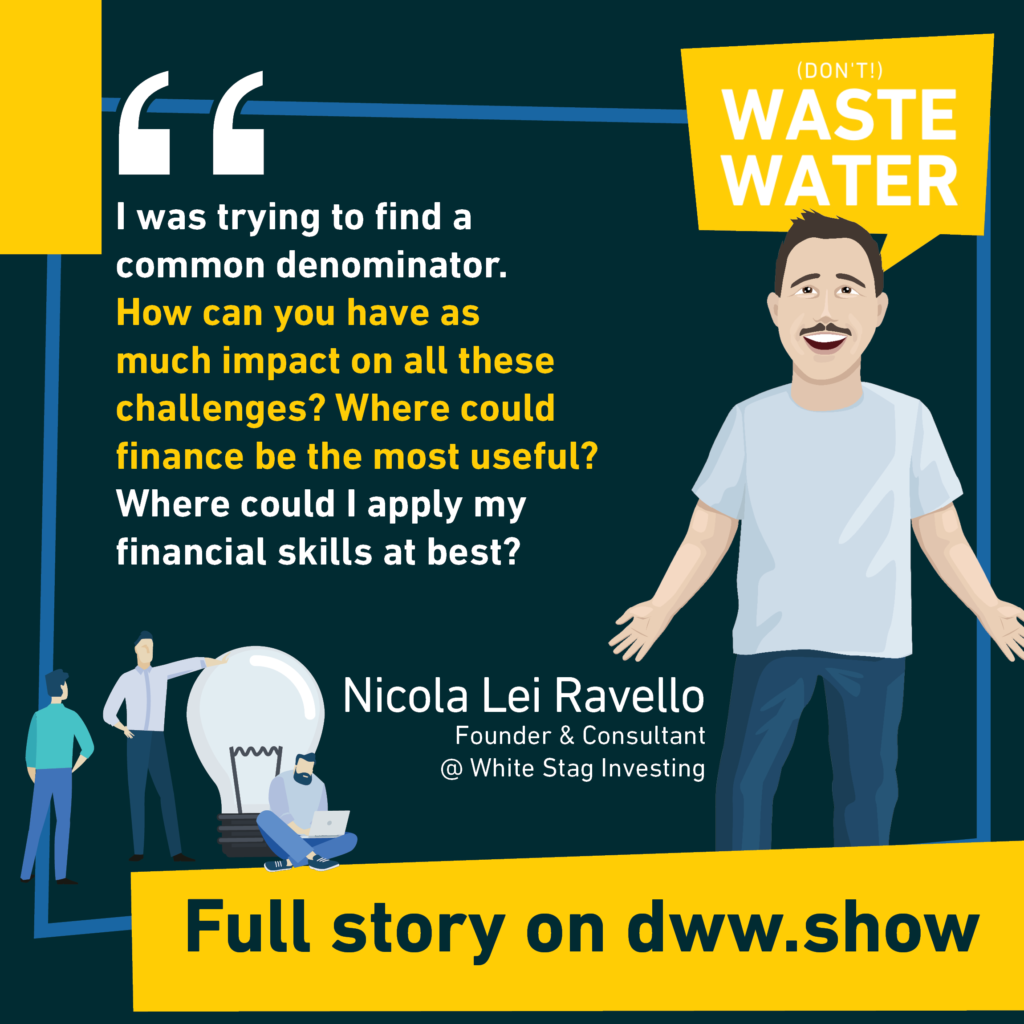
Antoine Walter:
How does that translate in this way to, what do you do today?
Nicola Lei Ravello:
So, so the way I started is like, actually I started to look at the SDGs as a roadmap, you know? And I tried to understand what is like the common denominator in all SDGs, you know, what is the
Antoine Walter:
Sustainable development goals? Sorry.
Nicola Lei Ravello:
So, yeah, that’s like the roadmap from the UN to, to see which kind of like the big development challenge the world is facing, you know, and I was trying to find like on common denominators, like how can you have as much impact to all of these challenges and where could finance be the most useful know? So where could I apply my finances skills at best? You know, and for me, you know, after looking at this, it can begin pretty clear that it would, it would be water, you know, because first for example education, I mean, that’s a great development challenge would be a great if you have more of that, but from a finance perspective, it’s not like you can just pour money in it. That’s then we can have people educated. You know, that’s a big political process, negative of process. That’s I don’t think finance can help a lot, whereas water. I felt that’s by looking at all the investment that if we can show the value that you can bring there, then it could, you could unlock something, you know, and then suddenly you have all the resources of the finance world. Couldn’t go to the water sector and somehow help it grow or get better. You know?
Antoine Walter:
So finance is a vector to a mission, somehow you Emmett the impact, but then you convince people that’s also investing in water might be something which is good, regardless of the impact it might have.
Nicola Lei Ravello:
Yeah. I mean for me, it’s really, it falls on a spectrum, you know, like in sustainable investing, we have like traditional finance on one side, and then you have philanthropy on the other side, you know? So whether you only care about money or whether you only care about impact, actually now everything is going to mixed up somewhere in between. You know, so some investors prefer to look directly once that traditional performance with some sort of impact and the other way around. So for me, I kind of see that as different tools can use and apply and see how I can now put different investors, access to teams, so go into water and then they use these resources there. So you would get some performance, financial performance, you will get some impact time zone, and somehow the resources would be redirected in the right direction.
Antoine Walter:
Really an outsider question here, what is an investment research firm?
Nicola Lei Ravello:
Basically I provide Intel to investors. So let’s say you have 10 billion francs. You need a good reason to invest in something, right? So that’s kind of where I come in. I said, okay, you want to go into water sector. I’m going to provide an analysis of all the challenges or the risks or the opportunities or the trends or the factors, what you should care about, what should be careful about. And then I’m going to dive in and edge your investment and make a case, you know, why you should put your money there and not you. So yeah, it’s really providing basically research for them to justify why they would invest in that. So
Antoine Walter:
One could have guessed that that’s going to be our deep dive today. We’re going to be focusing on this invest water. And the cool thing for me is that I can finally say that sentence, you know, that you hear in podcasts that you see in every LinkedIn post, you do, it’s just a disclaimer on the bottom. So for once I can do that, I can tell that sentence. So this is not investment advice. It’s not an offer solicitation to buy any financial services or financial instruments. And now that I’ve told that I feel okay, I have
Yeah. You know, there was kind of noise last December around water now being traded in wall street. Yeah. And you know what? The water sector is not full of finance professionals. And all of a sudden we were in the spot and thinking, Hey, what we do is now traded in the world’s biggest stock exchange. But what does that actually really mean?
Nicola Lei Ravello:
Actually water is not traded per se on wall street. What is treated is his future price. So that’s the difference of a, between a spot and a future price. It’s actually like pretty much all commodities and other precious metals. It’s not like you can go to a bank and buy a 10,000 barrels of oil, you know, but you can buy, identify worry of 10,000 barrels of oil in six months or in 12 months or in 24 months. So that if you need oil for your business in this timeframe, you’re going to get it, you know, so that’s you pay the delivery in this horizon for the price of today. So it’s going to be the same for water actually. So, but instead of a, we call like a physical delivery, it’s going to be a cash delivery. So you just get the money to buy the water, understand my in the future.
Antoine Walter:
It sounds a bit like a, an insurance, definitely
Nicola Lei Ravello:
A hundred percent. I mean I couldn’t give you an example if for example, you could be let’s say you take like a microbrewery in California, right? These guys need water to craft their IPA’s, but with the droids going on, they might not be sure to get this kind of water, you know, so in the following years, so what it can do is can actually go to the exchanges and get the water delivery contract. So it actually the boat, the water today to be delivered in two years. So they actually know that they’re going to have the money to buy the water than it in two years. So it’s really like an insurance that provides business stability, you know?
Antoine Walter:
Well, that’s a positive way to look at it. I was reading an article this morning published by the university of Miami. They were arguing against considering water as a commodity, because if the prices of oil really go above the roof, then you can invest a bit more in in exploration and dig out more oil to solve that. Whereas water is a finite resource. What we could also be discussing because yeah, you could also invest in desalination and bring more water inside the cycle. But if you look at it with a positive eye, it gives insurance and safety on the long run. If you look at it with a negative eye, it might be a door open to speculation, or really from an outsider perspective, what I’m saying might be making zero sense. So please correct me. Okay.
Nicola Lei Ravello:
Yeah. I mean, it’s not I think it’s it’s definitely a justified fear, you know, because I mean, that’s what we’ve been seeing into food commodities know like soybeans, so coffees, that’s attractive speculators and a price, which just go up and down up, and then it just completely changes livelihoods in the countries producing it, you know? So I think it’s a valid concern. I mean, I kind of looked at into this water futures and the way they kind of structured it, it’s going to be the the average price of different sources of water, you know, and this somehow makes it a bit more robust. And also that’s water is also the price of water is usually regulated. So it’s not like you can, there’s going to be some economic flaws and economic ceiling, you know? So I think, and this can provide some boundaries on this, on these two will actually avoid the worst part of speculation.
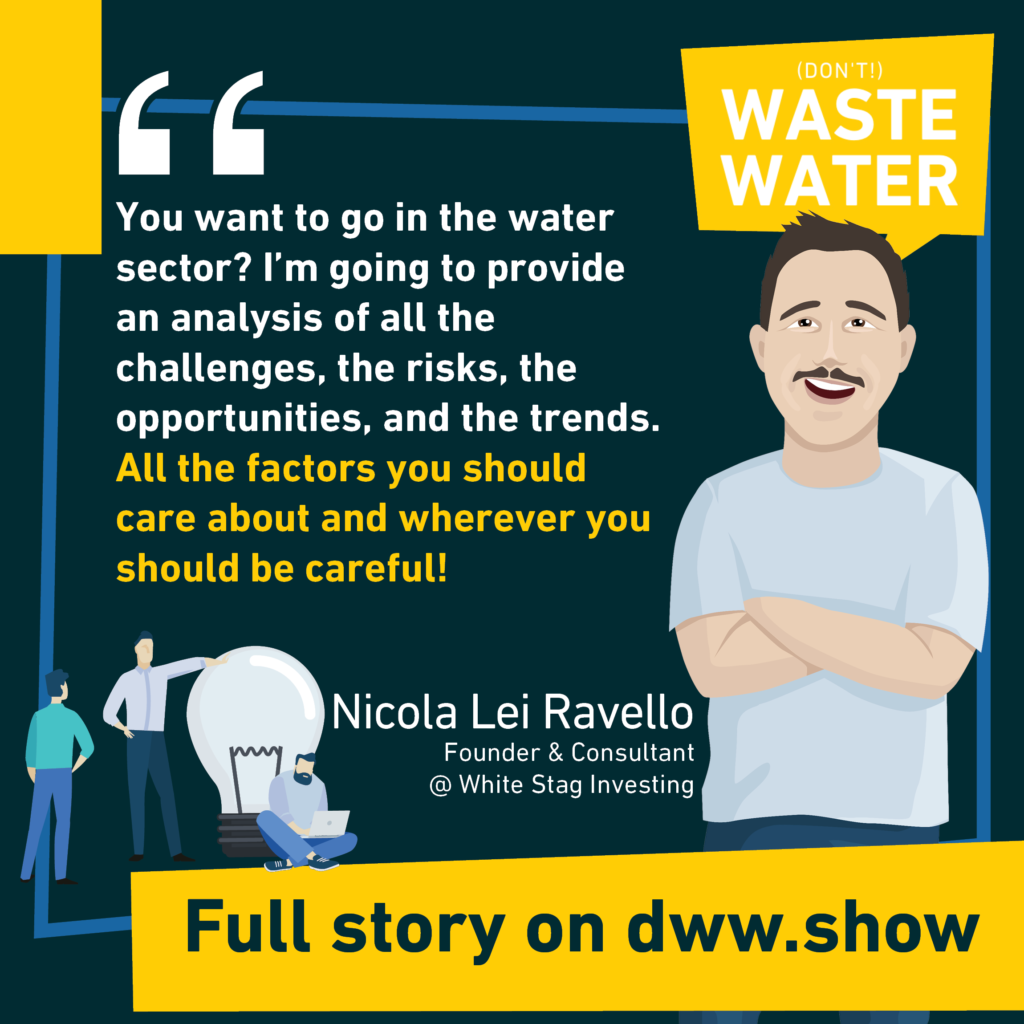
Antoine Walter:
Actually, you mentioned that the price of water is regulated. I read your various publications on the matter, just to be clear, you are investing in the sector, not in water rates,
Nicola Lei Ravello:
Plus my executive in, but yeah.
Antoine Walter:
And it’s the goal of the secretary regulation of the prices. You mentioned it as something which might be frightening investors because there’s no big profit to make in a regulated industry. But on the other end, you also mentioned that that brings this stability. It’s always going to be resilient. Is that the first reason to invest in the, in the sector?
Nicola Lei Ravello:
I mean, it totally depends on what kind of investor you are, you know, issue looking at just making a lot of money in a very little time, then you’re probably not, should not go there, you know, but issue a pension fund that needs to invest the savings into retirement, or you’re pretty much a one in a million person. Then it makes sense to go into a market when investments where the fluctuation of the prices. But, you know, because that’s provides stability to investments, you know, and a lot of insurance and pension funds actually need that because they do some, what do we call it? An asset liability management. So they forecast in the next 50 years, how much money they need to pay to everyone. And the most stability, the less volatility you have in those income streams, the more security you have to make sure that you begged those guys, you know, so that’s quite attractive for big investors.
Antoine Walter:
I like the way that you picture the water sector with this fully yours, I’m going to paraphrase you. So stop me if you want to do it better. But the bedrock is really the utility. There’s the industry, the it, and the healthcare here we are talking of the utility level. Yeah. So what you’re saying is that this is ideal. If you’re a conservative investor for structured reasons, does that mean that the optimal investment is a mix of all of those or is it really different kind of investors profiles or
Nicola Lei Ravello:
I think it really depends. I mean, it really depends kind of investor. You are, you know, people think it usually just banks or just pension funds, they just wind up at investor rates more. Usually it’s more like an ecosystem. You know, you have an investor they’re interesting laundry, long-term money investors that wants cash flow. Now, the way I kind of see it, what’s making it really interesting for me is that as you correctly say, the water sector is defined in the cross is for I would say financial sectors. So, and just chill, providing the hardware, it providing the software utilities, providing the servicing of the system and the healthcare providing the treatment. And it just makes it really interesting from a financial perspective, because all these businesses, there are different businesses, you know, they drive on different economic currents that you drive on different economic needs. So their cashflow and their revenues and their profitability is going to be somewhat different from a portfolio financial portfolio perspective. This is interesting because suddenly you tap in for different type of businesses with their own income streams, you know, and then you can create somehow a financial portfolio that is robust because if some, for example, one, an economic storm is everyone wants. Then at least you have the three others that are still standing. So it was less money
Antoine Walter:
Again with this mixed, a mixed way to look at things positive. It means that when you see a news, which says that 2.2 billion people will be facing water scarcity, what you see is also that business is, is here to stay because we need water for those people.
Nicola Lei Ravello:
Yes. I mean I mean, at the end of the day, it is a tragedy, you know, because you’re going to have a lot of people that are going to be facing poverty, you know, but at the same time you need a solution, right? And you need to try to frame that in a positive way to try to gathering momentum in this solution, you know, to make something happen. So, and I think that’s the power of finance, you know, because as soon as people start seeing value into something stuff happen and things change,
Antoine Walter:
That’s also draws on the difference between prices and value. If you talk to people in the street and you ask them, what’s the price of water, they’re going to tell you, it’s too expensive. We shouldn’t pay for it. I come on a water is, is nature. Why’d you have to pay for nature. And on the other end, there is no life without water. So the value goes through the roof,
Nicola Lei Ravello:
You know, it’s I mean, I think we could spend an entire day talking about this. It’s such a, it’s almost a, she’s a philosophical question. You know, they’re being finger would say about this is one problem. I think we’re seeing in the water sector that that’s something I read though, but the water valuation, you know, it needs to be low enough to make sure everyone can access it. And it stays at human rights, but it needs to be high enough to make sure we don’t it, you know, we make sure we, we make as many drop counts. So that creates some, a big, big economic conundrum. You know, at the end of the week thing, I think we were going to face an economic reality. That’s water is going to be a challenge, you know, and you need to find solutions to keep the social and spiritual value of water, but you need also to make sure that it goes where it’s needed. So I think it’s a nice challenge.
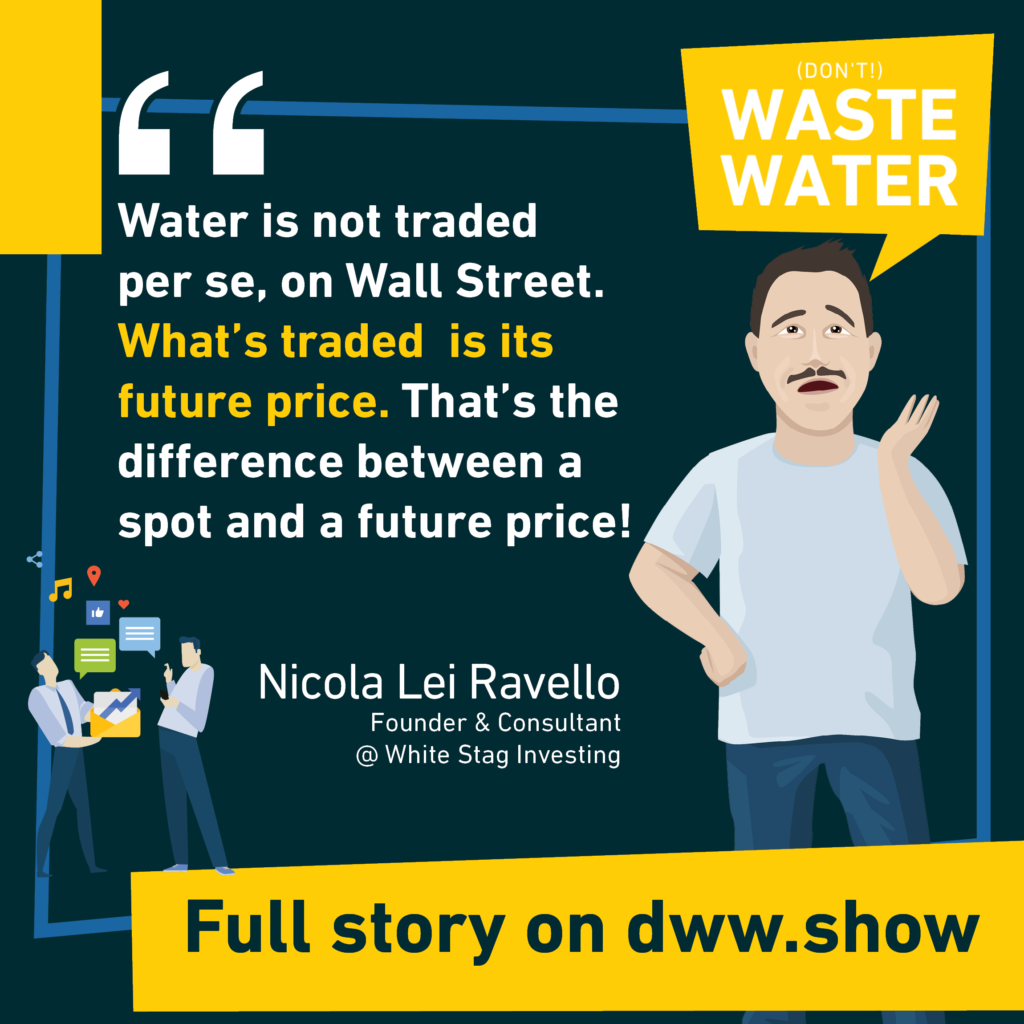
Antoine Walter:
So that’s the bedrock, really the utilities here to stay and we will always need water. If we go one step up in that pyramid, we have the industry here I get as well. That’s probably, if you need water on the utility level, you need people to deliver the pieces for that water. But now the, I mean the, the pieces of pipe, the pieces of, of treatment processes and so forth and so on, but here you could see bigger growth. I mean, I had, for instance, on the same microphone, Gilad Yogev from Fluence talking about MABR and MABR is a process which was not existing 10 years ago, nowadays it’s booming. So if you’re an industrial investing in a MABR worldwide, you’re gonna experience growth. But on the other end, that process is replacing another process. So that’s all the process. Your financial risk is much higher because you can get disrupted
Nicola Lei Ravello:
A hundred percent. I mean I think that’s the reality of any market or any business, you know, and that’s how I think, you know, innovation is driven across any industry. If you’re water, water investors in, you wanna try to stay invested in the, the top performing industrials, then you need to stay active. You know, it’s not like you can just buy this company. And in going to the beach for 20 years, you somehow need to make sure that those companies are still good business. They’re still performing well. They’re still delivering the client what the client needs. So you need to do some sort of follow up because I mean, if you invest in a company and in five years, there’s changed direction and change board direction, then it’s not the same company anymore. You know,
Antoine Walter:
When you say investing in the company, do you mean how can I kind of figure that? Is it really, you love that company and you invest in that company or is it really part of a portfolio? And you’re investing all of those
Nicola Lei Ravello:
Again, it really depends. What kind of investor your like, man, if you’re a retail investor, like it could be that you just love this company. You invest in it. If you’re a more institutional investors you want to, if it take the example of the institutionals again, you know, so those are pension funds. They need to make sure they have a stable stream of income coming for the next hundred years because they need to pay the retirement of everyone. For example, they need to make sure that in 50 years they have at least 20 years of stable income. So suddenly this becomes a problem for now, you know, and my whole is that mint water companies. I think they’re going to be the, the company is dealing with all the problems of climate change. They’re going to need to adapt the system. The infrastructure make the revamp, the system coming with new innovation when your gross potential, that’s a whole ecosystem dynamic. And I’m talking about the big picture together, you know, and just somehow make it some assets for society, you know, because the water sector, the water industry is going to be the guys that’s gonna fix that. So I think that’s precious. And the way the industry is structured makes it’s actually a long perfect long term investment. If you’re catching my my drift, you mentioned
Antoine Walter:
The industry is structured, actually. That was something that surprised me in what you put together is that you see this fragmentation of the market as an asset. And it’s that if there is an industry which is fragmented, our water industry, surely is that industry, is that the typical example? I mean, the world leader Veolia has 3% market share. And the thing there, the second one, SUEZ has 2%. So it’s like to us, those guys are giants, but compared to the markets.
Nicola Lei Ravello:
Yeah. Dwarves. Yeah. I mean, I think that’s a good thing, you know, because you have other markets where you have a, another, gotcha. You not have triggers that decide everything. I mean, that’s creates a lot of problems on its own. If I’m a finance guy, it’s means less leverage, you know, because they can do whatever they want. They’re going to get the money. Anyway. Just means all sorts of diversification. You know, I mean, if you invest across the entire water sector, this is more like 150 200 companies between wine goes bust. Then it’s not the end of the world. You know, if you have three companies and if one goes, but that’s a big problem. So yeah. See that does it differently as as a resilience for the industry. It’s
Antoine Walter:
Interesting way to look at it. It makes sense. You mentioned also the need for innovation. And I would expect from a fragmented market to be very innovative because competition should be kind of really, really strong. And so pushing the market forward,
Nicola Lei Ravello:
I would expect that too!
Antoine Walter:
If I believe my, my personal experience and actually all the people that were at that same microphone share to that comment. At some point in the interview, we are really working in a conservative industry. How can you have this dichotomy between competition that should be pushing us to do better? And on the other end, we really stay with what we know for 20 years, 30 years.
Nicola Lei Ravello:
That’s an excellent question. You know my guess is that as I wrote my article today, that I mean water is is basically a basic need service, you know? So it’s not like it can be very experimental with your innovation. So I think for right reasons, you’re going to have processes that make sure that quite in is unsure and safety is I’m sure that whatever the cost is, at least in my from what I’ve seen from a finance perspective, I don’t know what’s your which you more engineering beyond that. And the other aspect I’ve seen talking with other water investors, it’s actually the same problem with, I think other utilities and actually with pension funds in and the investment world is that utilities and benches. They’re, Ganda governed by older generations that I’m not, I would say the more senior you are the most winning for change, you know, and this can be some sort of a barrier to more innovation. And then when, when the new generation of new young guy comes in, they want to make a change. They want to implement their own things. They want tools, and that can be a driver for innovation.
Antoine Walter:
So we are too serious as an industry to be innovative
Nicola Lei Ravello:
If you’re going to put it that way, whether that’s good or bad, I don’t know.
Antoine Walter:
No, it’s true. That’s, I mean, it is a lot of imagination to even picture a disruption of the water sector. I mean, I didn’t stumble personally upon the Uber of water treatment might come one day, but I’m not sure if it’s only a generational topic because it’s an easy explanation. I get it. And it makes absolutely sense. But sometimes I give you my example of which when I was in engineering school, I never thought of disrupting anything to me. I learned how to do it, how to do it the good way. And I was just I was taught how to apply it and it was put inside my, my mindset. You know, again, we are serious. We are, you know, being innovative and crazy. That’s the thing for people working in IT or finance probably we are dealing with nature. We have to be humble. So let’s be conservative.
Nicola Lei Ravello:
I think that’s a great for those. I feel, you know, I think in Finance, probably the opposite, like we, don’t how to to be disruptive, to 3d, like a, you know, like pool, you try when you play Pool, you do a big shots in the beginning, explode everything and see what you can make out of that. You know? So you know what I mean, you asked me a good questions to email before seeing the the recent interest of big private equity players in the water industry, like Ardian or Meridiam. And I think that’s could be some sort of get that as for innovation. You know, those guys, they invest in basically the essential utilities of the world, but that’s not reasonable energy. Roads or airports. Basically any kind of service humanity. And I mean, if they see if they starts getting interested in it, that’s the minister value for them, you know? And usually when they come somewhere, they come with the money and the determinations to upgrade and change stuffs, you know? So that could be another catalyst of how things could change. And we could see some sort of improvement in the industry.
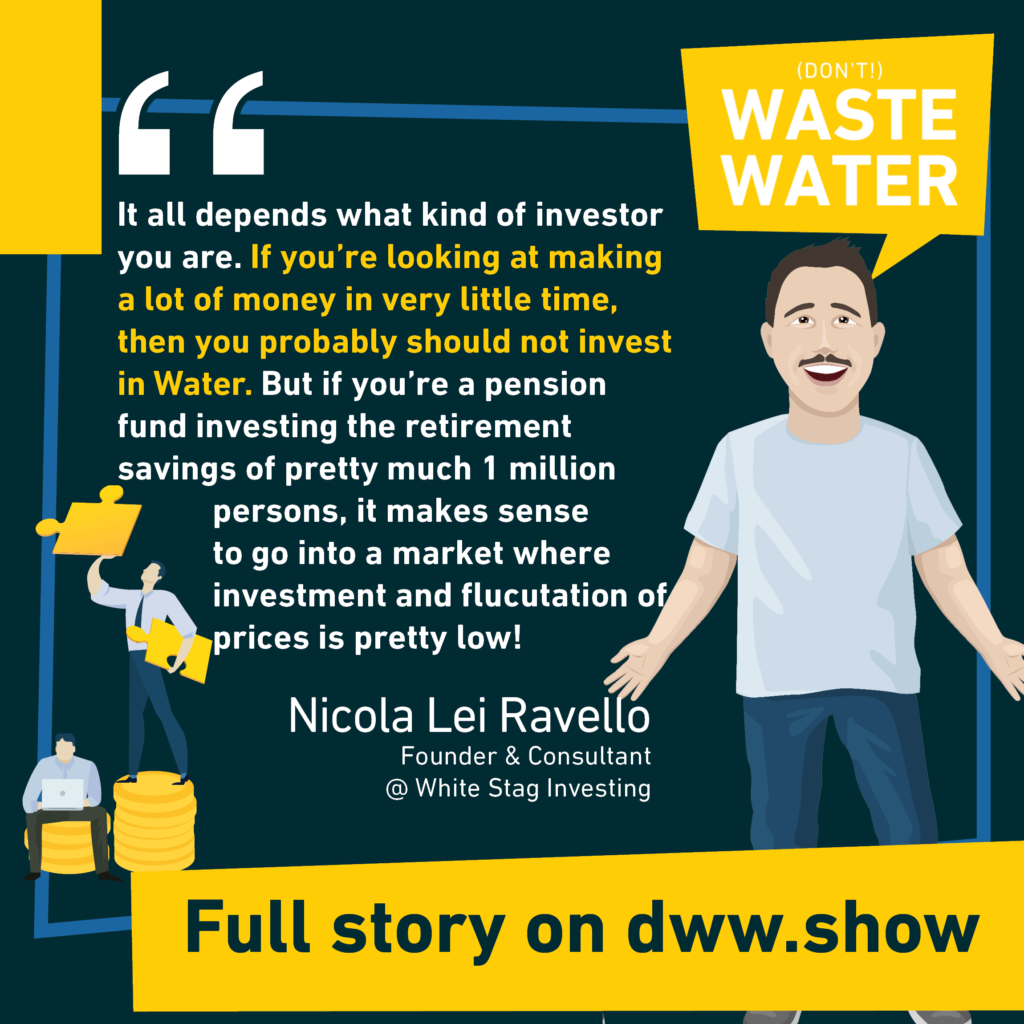
Antoine Walter:
Again, that’s a very positive way to look at it.
Nicola Lei Ravello:
I try to give them a run,
Antoine Walter:
The devil’s advocate today. So there’s another way to look at those big funds coming into water, which is, you know, what water, if you don’t touch it, it’s a, Cash Cow. You just operate, what’s working, you keep it running at the bare minimum. And the day the asset is really, really in poor shape. You expect to State to take it back and to repair it. I’m not being really, really
Antoine Walter:
If you look, I mean, all these Ardian, Meridiam topics came along, them possible merger between Suez and Veolia. And that was a big fear from the employees of, of those big groups to say, Hey, if we go into finance, you know, finance the devil, probably that means that we are going to cut the costs, be less innovative and and really try to milk out the companies as much as possible.
Nicola Lei Ravello:
And I think, I mean, I’m going to be the, the Angel Advocate. I dunno. It’s yeah. I mean, it’s, it’s really been, it’s the kind of investor, you know, like my opinion on, on Ardian, for example, those guys are really long-term investors, they’re long-term infrastructure. They need their things to work in the next 50-100 years, you know, so they’re going to put a sustainability, I mean, the real concept of sustainability, like make sure that everything is rents for the long-term at the heart of their investment strategy and the innovation thing. So it’s not like they’re going to, you have, you have edge funds. That’s the only thing is they do. They come somewhere this year, a week prey, try to keep it and extract as much money. What is, what is possible? That’s my opinion. What is being done with Danone at the moment? I don’t know if you follow that story, but obviously it’s a, I mean, you think it’s obviously a concern, you know, because it’s a change in paradigm, but I think then you can, you can try to find some sort of compromise between private and public solution. You know the one hand you need the conservatism to keep people employed and keep the safety and the underhand, you need some sort of entrepreneurial spirit to make sure that you need the necessary innovation to stay on top of quality. No,
Antoine Walter:
You mentioned our gen and maybe there’s a third funds, which is in the news lately is equity. They bought [inaudible] in 2017 for $240 million, I think at the time. And they just sold it to ’em.
Nicola Lei Ravello:
Yeah. So that 1 million, yeah.
Antoine Walter:
Or years later, so you multiply it by four in four years. Sounds like, you know here we are not speaking of a good father’s investment, you know, over 20 years, but like a really interesting it’s a crazy return on investment when you think of it.
Nicola Lei Ravello:
Yeah. It’s a good I mean, you know, that’s, if you look at that from a evolution innovatives perspective, those guys saw an opportunity there. So technology with potential, they financed it, they pushed it and now it’s been adopted by a big company. So somehow the innovations was integrated. And for that, the, they basically got paid five times the money, you know? So again, that’s my kind of my perspective of how finance can be a catalyst for change. Obviously there’s going to be a lot of people making money out of it. But if on the end of the day, you get an immigrant, that water system might be a, maybe a good thing.
Antoine Walter:
Well, that brings us into the third layer of your pyramid, because here we are into IT with Innovyze, but also probably much, other examples, then Innovyze. And what you’re describing here with EQT sounds almost like venture capital.
Nicola Lei Ravello:
Yeah, yeah. A hundred percent. It is, you know, I mean, I’ve I’ve screened a venture capitalist space in water. I mean, I’ve seen a 20 funds that they do only that they try to be really catalyst it’s. I mean, the investment strategy for ventures is totally different than for for pension funds. So if you’re a private equity, you’re looking at four 15, 20 companies, you try to map out the innovation process in a given industry, you see where the big, the big bottlenecks and you try to come up, see what kind of solutions can fix those, but the next then you make a portfolio of these 20 companies and all of them, actually, they don’t, they usually expect that one or two to, to be successful. So they’re actually going to be paid by just one, six being successful in the, all the rest. They just lose the money. So even if they make five times the money, they probably lost half of it by trying other crazy ideas that engineers were pretty happy to try to try to implement, you know?
Antoine Walter:
So at which stage do we speak of investment here? Is it I mean, venture capital could be you, you find a guy with a, with a cool idea and, and you’ve found him really at seed level
Nicola Lei Ravello:
That’s even before, you know, it that’s like pre-seed okay. So there are funds that have a corporation program, which universities, they go talking with all the young engineers, or even not, they’re not even engineers yet and try to see what kind of ideas or credit solution they have. And if they find one that is good, they’re going to give it some money to try it out.
Antoine Walter:
But I mean, that’s the model we know with famous dropouts from school, with like Mark Zuckerberg, bill Gates, but, you know, it’s, that’s, that’s that permanent question to have in which I’ve been raising many times at that microphone. Is hypergrowth something which is possible within the water industry, because for sure are software as a service companies, they are really cool things, cool companies, cool concept, really aiming it at disruptive and solving bottlenecks, like you just said, but in the end, it’s it’s still that conservative market. And yeah, I guess you know, I was playing the devil’s advocate against finance here, but I think when I’m doing that, it’s a popular opinion within the water industry. We see finance more as an enemy rather than as an Ally, which it should be I guess, and I think,
Nicola Lei Ravello:
I think that’s why I’m trying to show as well. You know, I mean, look, there’s a, there’s various reasons for people to be, not trust your phone. And so, I mean, with what happened in the last great financial crisis, I mean, I mean, so many things went wrong. I mean, we could spend two hours talking about this, you know, but at the end of the day, you know, like the economy and finance is really again, and of course, system of a different type of people and, you know, so, and all they can, they can have the usefulness into the innovation process, you know, so you can have venture capital that are just, they can either care about the technology and to be the guy that, of how to create a SWAT water, to fresh water with that energy would have kind of stuff and be the biggest guy in the room.
It can be a guy that wants to just make a lot of money so that it would be an adventure kind of archetype of people, you know, but just putting their money into that. It catalyzes an idea and make it somewhat a reality, you know, and that’s probably why it’s dynamism economic dynamics into the system that’s creates growth and innovation on the other end of the spectrum, you’re gonna have institutional investors, which have treated us to invest and they want stability and that they’re gonna make pools of money by investing into the big big water companies at the very top level, like the industry of the utilities. And this is going to be a big part of their financing as well.
Antoine Walter:
How can I envision your role? I mean, you are similar people doing the same, same thing that you do. Is it like being an intermediate between the, those people with with the technology and the people with the money or the people with the ideas and the people with the markets or what, what’s your mission?
Nicola Lei Ravello:
Yeah, I mean that’s a good question. At the end of the day, you can see me as an engineer as well, you know, an investment engineer or like an economic engineer. So there’s a plan comes ventures that has been, I don’t know, investing in in food and now he wants to do in water in wants to invest at the very beginning of their innovation process or the value chain. So you see those seeds and I would help him like, okay, what’s what are the key solutions, which I think could be the game changers in all the, the bottlenecks of the industry. And then I would help him to create a portfolio of this. And then this could be, you could be successful financing one and maybe losing 10. So that’s, I’m helping him designing this portfolio construction. That’s when I can amend for them. When I’m an engineer, it could be a pension funds then wants to invest 5%, which still represent billions on choosing the best water funds or the best water stuffs to making sure that the allocation of different companies is as stable as possible. You know, so that’s kind of where I come in. The reasons
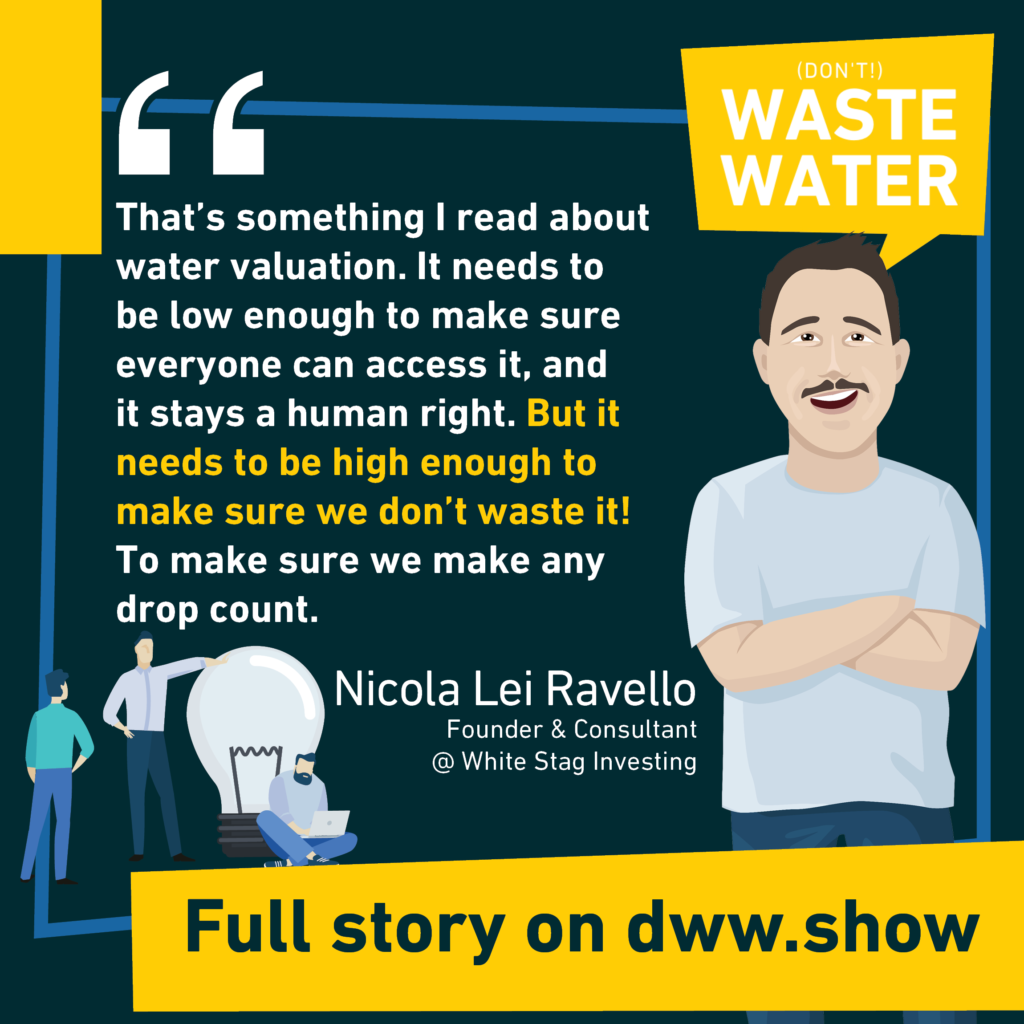
Antoine Walter:
I’m asking is that you, you mentioned this engineering aspect and if the water industry, wherever you are aiming at it’s engineers, I mean, sales guys are engineers, marketing guys are engineers. And that has lots of pros, I guess, because it means at many stages of the pyramid, we have people understanding the matter of water, but it also comes with the cons. You see a marketing campaigns build around nice features like my pumping capabilities when probably you shall tell a story instead. And I guess I’ll give you another personal example here. I remember one of the first project I was working on, we lost it. So we, it was tender phase, everything. We lost it. And it was discussing with with another engineer, which was working on the project and the guy was sincerely asking me, you know, how could we lose? We had the best process. So the best wins, the best shall always win. And actually, no the markets decided to go somewhere else. And if you don’t understand the market, then your chances to reach product market fit, to use the big names that doesn’t exist. And I would see that as something coming in the way of potential water startups, because they might have awesome technology.
Nicola Lei Ravello:
Nobody wants it to then, yeah, I think that’s the, the classical you can have a perfect solution, but if you have not any problems to use it, then it’s pretty useless, you know? And it’s interesting, you mentioning that because I, I read an article recently that exactly everyone in the water industry is pretty much engineers and that’s kind of restrain the cap, the cognitive diversity of how people think, you know, like we’re having this probations and then we’d have a totally different way of seeing things, you know, and I believe to our interaction, we can somehow come in the middle of grind and trying to find something new, you know? So I’m also a big believer in that kind of thing to group different kind of people together and see what they can come up with together.
Antoine Walter:
I wonder if sometimes people even try to come with fully disruptive idea, let’s take a very stupid analogy, like stupid already. Sorry for that. Yeah. Autos everywhere. So it’s pretty fragmented market. And then you have a booking who comes and says, Hey, I do a platform. You no longer have to book a room because you do everything through my platform. They take big chunk of the market. I mean, that story is before COVID, but let’s say, and I’m wondering why nobody, for instance ever tried in the water industry to say, Hey, it’s highly fragmented. You could be doing everything. What if you didn’t care at all? And you come to a book, my water treatment.com and I take them this big chunk. I mean, it’s a stupid example, but just to say, sometimes we’re a bit doomed to come with with faster horses instead of coming with a car.
Nicola Lei Ravello:
I mean to be honest, I’m not as specialized in water treatment yet as you are. So my first opinion on this, I think there’s more regulations and barriers in the water industry than there is in the Hotel industry. So that’s also some innovation.
Antoine Walter:
You mentioned regulation. It’s interesting one, you see regulation as an opportunity for instance said the U S regulating the PFAS is an opportunity. Whereas again, from my negative point of view, regulation is something would really comes in the way of liberal investment. And it sounds like, you know, two opposites
Nicola Lei Ravello:
Yeah, I mean, you know, again, it’s you don’t have to fight every risk. You have an opportunity on the other side. So as we discussed before that, I mean, the regulation on the price of water can be bad for speculators because they’re not making enough money. It’s actually a good thing for institution investors that want stability in their performance. You know, here on PFAS, that’s going to be a problem for a lot of industrials because suddenly they have to take care, take care of their water treatment, you know, but for the people that designed the membrane that’s going to do that, that’s going to be, that’s a good news. You know? So again, if you keep a, an ecosystem market ecosystem perspective, always things are changing and moving, and then you have new players coming and trying to basically they make their own business model or their own gross innovation and that kind of things. So, yeah, I mean, that’s getting on my point, like if a business or company lose somewhere, then you have a new company that is disrupting those things and winning somewhere else. You know? So now I’m going to change the site and I’m happy to turn the table.
Antoine Walter:
That’s there’s a steady potential and booming potential water is a topic which is here to stay there’s water scarcity, lots of wastewater. I mean, four fifth of the waste water today is not treated. So there’s something to do here. We see that big funds come in, make crazy return on investments because there is also that new IT scene. And I had the other mentally exited rater on, on that microphone. We were discussing of startups and bringing them to, to the next step. And they have a churn rate, which is below 10%. So really it’s not investing in, in 20 companies to have one that succeeds in 19 that die out. It turns out that in the water sector, you can invest in 20 companies and have 18 that go to the next level, maybe not to become booking or Uber or Facebook, but still, which are profitable, which, which reach profitability. So why don’t all investors turn to the water sector and bomb it with money because that’s the best investment there was that we’ll be in.
Nicola Lei Ravello:
I think they just don’t know about it yet. I mean, that’s kind of why I’m starting my business. You know, I want it to show that there’s so much things to be done here, and there’s so much finance can do, and there’s so much opportunities. So basically my job is trying to show that, you know, and by writing this article, by coming to you and talking about this, but try to see things in the new light and a new perspective, then I’ve tried to share that with all the investors in somehow things can move forward, you know, and somehow the resources of the finance can come to, to the water industry on a hold. I don’t know what I would say that you just have to take into account that global equity markets are just going up all the time now. I mean, the thing is just crazy.
It just, just one big spec. So if you’re a short-term investor, it’s a heaven for you now, so you don’t really need a reason to go anywhere else. Then it comes up a lot of different topics in the economy, but central banking, liquidity, and everything that is happening to support the economy at the moment. So, and that’s also one of my points that, I mean, this kind of short-term market momentum we are seeing at the moment. I don’t think that’s going to last forever, you know, because it’s such, it’s so based on price inflation on evaluation, I think a bit less on on the profitability of the underlying investment. But my point is that if you go into the water industry with all this potential, then this, some studies potential can become an insurance and a guarantee of something that is away from the markets. You know, and that’s interesting for investors because if you just hooked on the markets, then you can, if it falls, you’re gonna fall with it. But if you, somewhere else, if 30% of your portfolio is in water companies, then in the market goes down and obviously the water industry is going to, if everything, then what the industry is going to think as well. I think, you know, in some way it’s a bit differentiated. So that’s kinda the approach I try to come through.
Antoine Walter:
Well, I think a good example of that is what happened with COVID. I’m pretty sure that the water industry was at least stable over the time. It didn’t disappear. I mean, people’s drinking water is still flushing the toilet.
Nicola Lei Ravello:
So yeah, I mean in terms of protection, UTeach is can their price it in, I mean, we’re quite robust, you’re quite residential. You know, they’ve been dropped as much as the as as other investments or that’s, this is some sort of protection for investors on the industrial side. I sorted some contractor delays with, I mean, they all put so much on industrials. They can revise their forward guidance. You know, how what’s been happened in the induced sales book for next year. But so far I think it’s things like getting momentum again.
Antoine Walter:
So short term investors don’t yet need water because they have all the playgrounds. How would you define the long-term? What is longterm? And in terms of finance, is it two years? Is it 20 years, a century?
Nicola Lei Ravello:
That’s a good question. You know, and like for me, long-term is really 20 years in plus fire. You can even say fabric then, you know, but again, using the analogy of institutional investors or insurance, you know, those guys, they base their all on their investment strategy on the next hundred years. You know, I don’t know about all of them. Some have, may have a different, different time horizon, but again, you feel benched on and you need to, to pay the retirement money. If someone in 50 years, they didn’t need to make sure that you’re going to have this money, you know? And so then it just has become supporting for today. So you need to make the right decision today. That’s what I would qualify as a, as a long-term investor.
Antoine Walter:
So it’s still not investment advice, but one thing that people underlook when they look at what the sector as financial investors, what is the thing that they don’t catch
Nicola Lei Ravello:
For me, Amanda, I think for me, the most exciting thing is a natural based solution. You know how like you can use the ball of nature to finish an aspect. I, so for example, last year that the central Arkansas has utility. It should have green bond and use the proceeds to buy the surrounding forest around this utilities, you know, so that was preserved and the natural filtration process, the flutter and protect its water, if I’m here, one development, you know? So I think that’s makes a lot of business sense, a strategic sense, you know, and that’s pretty cheap and less costly because you don’t have to create another infrastructure to clean the water because you just saved the nature. So I think everything in the direction like wetlands, or like spawn cities, that’s just really exciting
Antoine Walter:
On cities. It’s a pity that you use that keyword now because when I work, yeah, that’s a note to myself when they have to schedule that one hour about sponsor cities.
Nicola Lei Ravello:
I think it’s, it’s pretty exciting topic.
Antoine Walter:
What’s the perception of your peers. I mean, now people are coming from, from the financial world when you come and you say, Hey, have a look here. It’s interesting for green reason for, for meaningful reason, probably, but also for financial reasons, are you seen as an outsider or is it really something which is also moving in that field?
Nicola Lei Ravello:
It’s a very interesting question. People would see more and more seriously. Like I got some friends or other people there, pure finance guidance and stuff, listening a lot, you know, so they definitely seem to interest in the value in that
Antoine Walter:
I was discussing preparing for, I hope a future interview with Jeremy Thomas of a, if it is into this hi Jeremy. And if you want to have a look at what what his publishing, he has a hashtag on LinkedIn, which has let’s talk water
Nicola Lei Ravello:
He’s French, right?
Antoine Walter:
He’s partly French. Okay. When we were discussing that he was waiting for startup accelerators, venture capitalists enter the, the water topic in Europe. It was seeing that in the U S and he was expecting it to come in Europe. And finally it turns out that that starts to bubble out. So finally his prediction is becoming true. So a startup studio, X generators are created in Europe. So usually we have the tarts compared to the us, but there’s also something interesting, which you, you you, you quote it as well, which is that the water sector comes usually some years after the energy sector. Like, if you want to see a future, we have a look at the energy sector and we see what’s coming to the water sector. Do I understand it right here? So if I, if I’m looking at the energy sector in the U S I see the longterm future of the water sector in Europe,
Nicola Lei Ravello:
I didn’t really frame it like this, but it’s yeah, I would say so. I mean you know, it’s the same idea that, you know, we had, we had so much discussion around climate change and and air carbon emissions rising temperatures of the, of the mental problems go much deeper than just energy, but what kind of energy you’re using and air, or, or heat pollution, if you want to say. And I think water and biodiversity in the oceans are the next in line, you know, because I think that the big governmental problems can come past all of this, you know, that’s the whole, whole human I’ve integrated the nature and society, you know, and yeah, I think people started with energy. And for me, it makes it sort of assume that water is the next, you know, because it just, just the next thing
Antoine Walter:
And how much has this, let’s call it futurology important for what you do. If you, you see the future, you know how to invest.
Nicola Lei Ravello:
I really see that as economic currency, you know, like where things are moving forward, I cannot see the future. I’m not I’m psychic, you know, come on. But I know, but if so, you know, but I see things are going in a certain direction. So you try to catch those currents and see where it goes. And I think that’s, that’s kind of what, how I see finance, you know, like, I mean, a lot of people are investing and this is a bit of an old mentality. Like you invest stretcher protects your money. So you’re going to try to, it’s like putting your money under your bed, you know, but if something by that, but to your bed, then you lose your money. You know, it’s not like money’s safe somewhere. And that’s the big problem we’re seeing in finance at the moment.
My approach to it is like, if you see a cut on your economy or these trends as economic currents, then you can design your investment portfolio in a different way, such like a ship, you know, that’s can flow on these different currents. So you may not know where it goes, but at least you still have a water. You know? So for me, it’s a different way of investing by trying to stay, to stay on the dock and not trying to hide in, in gold or in Bitcoins or that kind of stuff. And it’s an identity because a lot of veterans now are seeing a lot of issues because I mean, I don’t want to spend another hour talking about markets if we have something else to do. But I think that’s one of the main issue in we’re seeing in finances. So many pensions have liability to the pension is in 50 years, they’ve been investing in in credits or bonds since they were the Dawn of time. And now those, those bonds, especially this response, the yield negative yield. So you actually pay the person to lend them money. You know, so my, my ideas, I kind of said, look, we can actually invest in what are, you know, because this is going to be a growing sector in the next century. So I’m trying to provide alternatives for these kind of investors.
Antoine Walter:
Basically you put some money within your beds or in gold or in Bitcoin or in bonds, if you don’t trust any of the means to bring you that money back with benefits. So somehow we are doing the same job here. We are trying to evangelize people that they better understand the water sector, and if they better understand it, then probably they invest in it a hundred percent. Hey, see, we brought finance and environments are green minded people together.
Nicola Lei Ravello:
Yeah. And hopefully we took something good out of it. You know,
Antoine Walter:
Actually you, you mentioned Bitcoin, and again, it’s not investment advice and I don’t want to invest in Bitcoin.
Nicola Lei Ravello:
I can send you my disclaimer, if you want to read it,
Antoine Walter:
I saw from your, from your path, that’s, you, you are also working in blockchain and blockchain into
Nicola Lei Ravello:
Government, such basic registration. Yeah. So, I mean, that’s a young startup I’m supporting here in Switzerland and I think they’re doing something fantastic. So what are they doing exactly is, you know, when you have reforestation conservation or preservation efforts in nature. So that could be like a preserving and forest that can be reconstructing a forest that can be a Marine protected area that can be any side of natural park. You know, this nature, centuries or zones, they are their own carbon sequestration, both, you know, so this, these lands, these natural capitals have a capacity to absorb carbon. And if you can measure it and if you can monetize it, then you can set it to a big companies that want to offset their emissions. You know, so what I find fantastic in that is that suddenly you create a financial link between natural conservation and global markets.
So global companies suddenly you have global companies that are strategic interest to preserve nature because it’s offset the emission. They can be the good guys that increase their repetition Kapito. So that creates like an extreme, you know, like a river or an income stream directly to the natural conservation in the longterm. And since now this has value for these companies. They have an interest in preserving it and not destroying it, you know? So if this forest has value to a company to keep it alive, because it’s reduced its carbon budget, Dennis is going to make everything and needs to, to make sure that stays alive. You know? So so that’s something I’m pretty excited about trying to how we can realize the value of nature into the markets and use the market forces to protect it. There would be so much here to but because actually that’s a fascinating topic that we could be spending very easily another hour on that, but finally finance can do good. Blockchain can do good. Hey, it turns out we, we don’t think everyday, you know, you’re not at the end of the day, I see finance as a, as a tool. It’s like a hammer. I mean, you can use a hammer to nail down and a screw or to break someone’s head, you know? So at the end of the day, it’s what you do with that.
Antoine Walter:
I think that makes a, a good conclusion for seasons. I propose it to switch to the rapid fire questions.
Rapid fire questions.
Antoine Walter:
I try to keep the questions short and I’d be happy to try to keep the answers short to always the one which makes it longer than it should. Maybe we can challenge what is the most exciting project you’ve been working on and why?
Nicola Lei Ravello:
For me, it definitely has to be with the Asian development bank and it’s S C ocean action plan to finance the, the sustainable transition of the, the ocean in the Asia Pacific. So basically we had a project of, we mapped out the entire blue economy. So it’s similar to the water sector. We have, you have different sectors like aquaculture agriculture. We looked at all the problems. We look at all the solutions and we come up with with the portfolio of solutions, what are the best thing to fix to make sure that it works afterwards? So the bank has at 5 billion and it was like, how can you make the most impact with that? And that’s what we do. So that was pretty cool. Again, I have to refrain myself because
Antoine Walter:
W what’s the favorite part of your current job?
Nicola Lei Ravello:
That’s a, that’s a tough question. I mean, nourishing, I mean, I woke up in the morning. I’m excited the whole day. I was like this I want to go everywhere. I want it to be a real thing and all my energy is spent on this. And at night I just, I just collapsed usually on my couch, you know? But I think it has to be something precise is try to come up with a new way of seeing things and you new solution to fix a program pretty much as we’ve been thinking about this for the past hour,
Antoine Walter:
I’m very excited about the next one, because you are a close ups of the markets. What is the trends to watch out for in the water industry?
Nicola Lei Ravello:
Like the trend I’m going to say something you don’t like it’s, I think it’s nature based solution is fun cities, because I think it’s, for me, it makes so much sense, you know, and like you can have a tech solution with a natural solution together and it makes so much economic sense and it makes so much ecological sense that having these sorts of natural integrated solution, I think that’s where I would go with that’s where I’m going to go to.
Antoine Walter:
Okay. So for the one listening here, take your time. Take a note to respond to CTS is definitely we’re going to cover, and
Nicola Lei Ravello:
It’s not investment advice.
Antoine Walter:
This is a thing that you care about the most when you’re working on a new project. And what is the one you care the least,
Nicola Lei Ravello:
I’d say the first is quality. You know, again, I’m see myself a bit as an engineer. And every project is kind of like a boat, you know, and I need this boat to make sure that it’s robust, that it can be tested in the water. So it should not have no horse in. It has to be, it doesn’t have to be perfect. You know, didn’t have to scratch all the down or the birds, but it needs to float, you know? And that’s something I’ve found great pride in my work. If I can design a project or an investment process or, or whatever that can run as far as it can, without my help. Then as I see that as a success, you know, because I don’t need to come back and fix it.
Antoine Walter:
And what’s the one you care the least. So people always struggle to, to answer that one. And usually when the answer is something, they answer money. They don’t care about money, but if you do that and you don’t care about money, I guess for you, it’s a, it’s a professional photo.
Nicola Lei Ravello:
I mean, you need money to live, you know, as much as you need the water to live
Antoine Walter:
Well. I mean money in the sense that when they work on the project, one of the usual answer I get is we don’t look at how much it costs because it’s going to bring so much, we better invest the right amounts. And we’re going to be paid off.
Nicola Lei Ravello:
Not we don’t see that a bit. I mean, at least for me as an economic guy, monies is part of my design, you know, so you cannot just be wasteful with money. You need to find a solution that is workable and then it’s efficient in terms of reward to the amount of spent. You know, maybe, I don’t know. I mean, if I could redirect the questions, something that bothers me a lot in my work is dealing with HR. For example, as I am an independent consultant that can come to a bank to help a bit with this process, usually then I’m on, I’m not on their book, you know, I’m not on their on their things. And whenever I need to deal with everything, I have to deal with HR and it’s always on this.
Antoine Walter:
Okay. Do you have sources to recommend, to keep up with the water and wastewater market trends?
Nicola Lei Ravello:
For me, I got everything from LinkedIn, you know, and like it’s been my main source of of everything since three years, like and I really like to get it to stay up to date by talking to people as much as I’m talking with you right now, you know, so for me, I would say, go on LinkedIn and connect as many people as possible and have as many good discussion because I think that’s how you get a feeling of what is going on in this industry. You know,
Antoine Walter:
There’s many people who do you have someone to recommend me to invite on that microphone?
Nicola Lei Ravello:
I would recommend Michael Stanley Gallisdorfer, you know, him, you know what, because he’s also, we also talk the West fund cities. I really are having greatest concern with him on now on LinkedIn. I really liked the way he thinks. And it’s really interesting. I think he’s doing good things. So he wants to go to think good things in the great lakes in North America. And I’ve seen him also talking about really new solutions, like using oysters for water filtration or that kind of things, you know? So if you want to explore that to maybe talk to him,
Antoine Walter:
Seen you debating with him over curves AC,
Nicola Lei Ravello:
I think we could spend hours talking about this
Antoine Walter:
Finally, to send you, you know, the warmest regards of people that might have discovered a new way to look at the water market with you. Where can I redirect them to your LinkedIn, to a website?
Nicola Lei Ravello:
Yeah. I mean, you can follow me on LinkedIn. I don’t have a subscribe button. I see that I do actually. What does make this joke with my girlfriend? No, but my LinkedIn, that’s why I’m the most active and on my website as well. So staying in investing.com,
Antoine Walter:
Maybe my last question, which would have been my first question as well, why white stag
Nicola Lei Ravello:
And there’s many reasons, you know, like they’re an extremely resilient species. Their numbers have gone down very well down the U us since they were [inaudible], but somehow they were able to adapt and you can see them a lot in the, in the neighborhood in a, in a suburban areas. So it’s a species that just go forward and try to adapt to whatever circumstances is ahead of them, which is an interesting analogy to what you do. And I get it. It’s been a pleasure. Likewise, thanks for inviting me. That was really interesting. I think we know how to do a sequel episode. Sure.

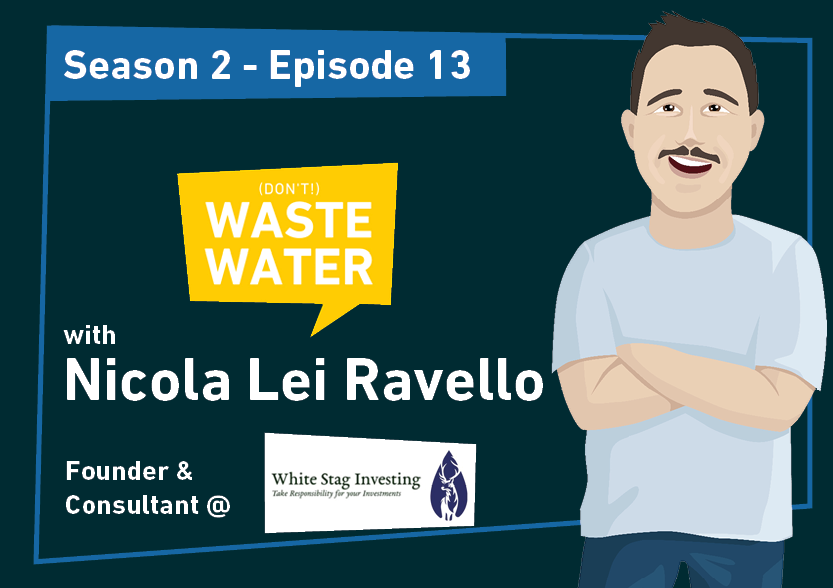

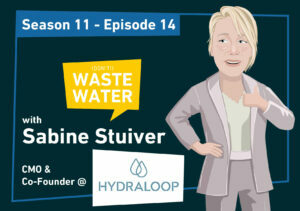
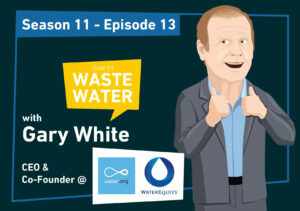
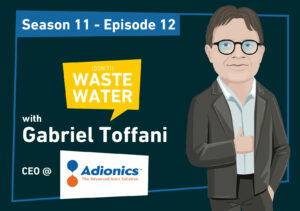
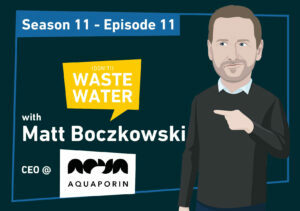
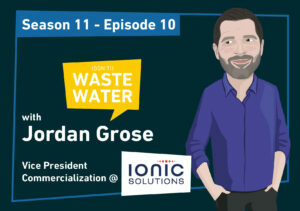
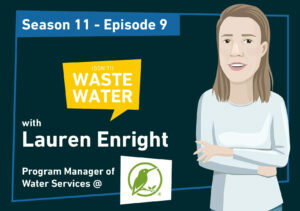

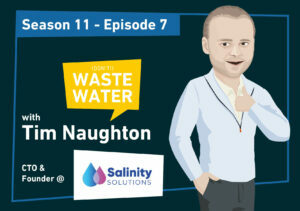
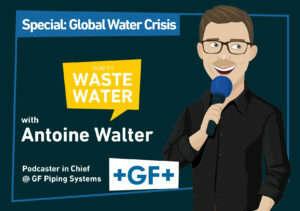
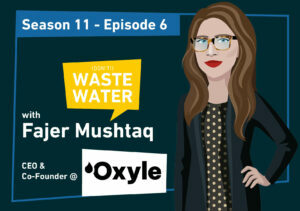
4 thoughts on “Can we Turn Finance (Astoundingly) into the Water Sector’s New Best Ally?”